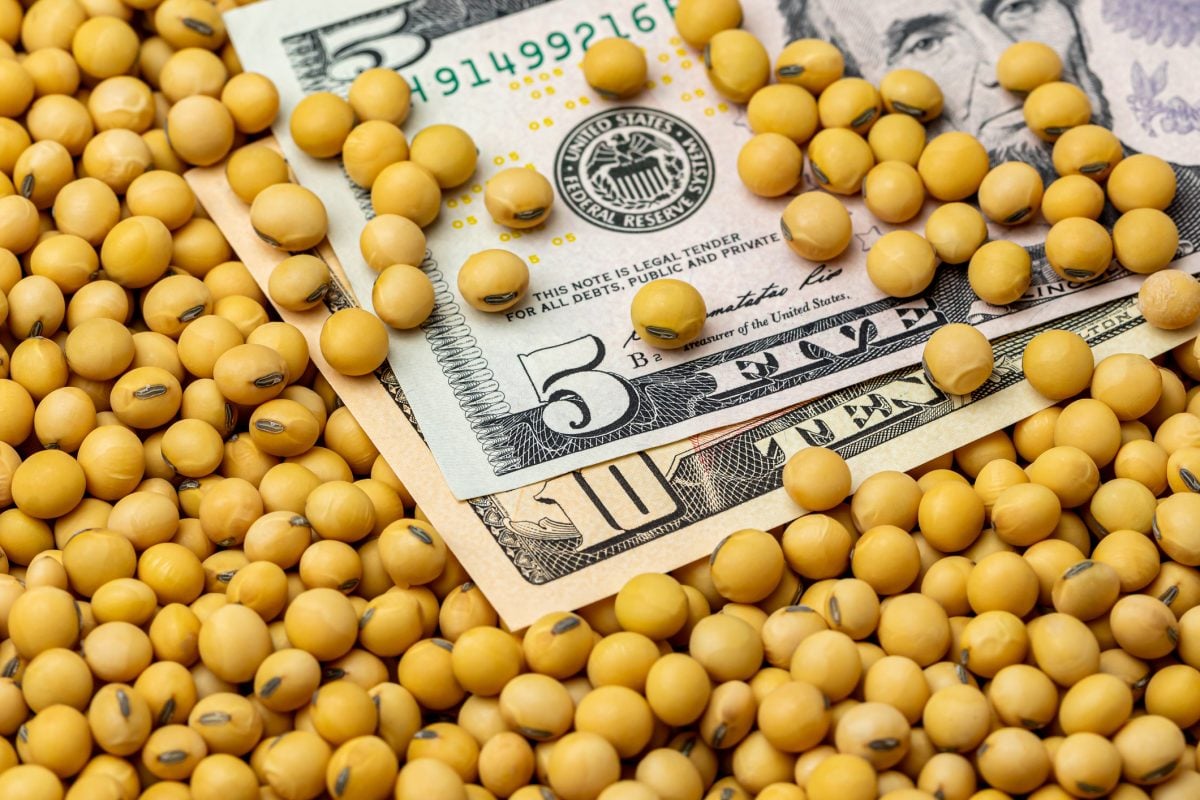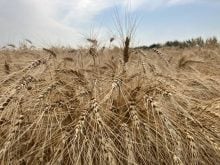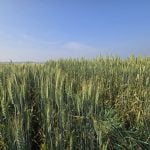Montreal — The Canadian government is working hard to reopen Richardson International’s Canadian canola markets in China, says Chrystia Freeland, Canada’s minister of foreign affairs.
“We’re working closely with Canadian farmers and Canadian industry,” Freeland said in a brief interview after speaking at the Canadian Crops Convention (CCC) here Wednesday.
“Our embassy is very focused on this in Beijing right now. We’re talking to our partners right now — other countries. It is a very important issue for us. It’s important to take a bit of time to get all the facts, but I do want your readers and Canadian farmers to rest assured that we take it very seriously.
Read Also

U.S. grains: Soybean futures hover near 15-month high after China buys U.S. cargoes
Chicago Board of Trade soybean futures hovered near a 15-month high on Wednesday after trade sources said China made its first purchases from the autumn U.S. harvest ahead of a summit between leaders Donald Trump and Xi Jinping.
“It might also be worth saying that in the past 24 hours my colleagues, (Agriculture and Agri-Food Minister) Marie-Claude Bibeau, (International Trade Diversification Minister and Manitoba MP) Jim Carr, (Public Safety Minister and Saskatchewan MP) Ralph Goodale and I have been focused on this.”
News broke Tuesday that Richardson’s registration to ship canola to China was cancelled. China is Canada’s biggest canola customer accounting for about 40 per cent of Canada’s canola exports worth $2.5 billion.
CBC News reported Wednesday a Chinese official said Richardson’s canola exports were blocked for being substandard — an allegation Richardson, Canada’s largest grain company, disputes.
However, if that is the problem, Chinese and Canadian regulators should be be able to quickly fix it, Jean-Marc Ruest, Richardson’s senior vice-president of corporate affairs and general counsel, said in an interview Wednesday.
Richardson has exported Canadian canola to China for decades and has never had its shipments blocked, he said.
“We looked at the notice of non-compliance that were issued and quite frankly didn’t understand how they could possibly stand up,” Ruest said.
“Our test samples quite frankly didn’t show the same things as what they were suggesting were the issues. So you put that together and say it’s not a quality issue, it’s not a technical issue, then what can it be? And we can surmise.”
Asked if he suspects China’s actions are related to Canada detaining Huawei chief financial officer Meng Wanzhou at at the request of the U.S. government on charges of bank and wire fraud, Ruest replied: “Well that’s obviously one of the issues out there.”
While Freeland didn’t say what might be motivating China, she endorsed the quality of Canadian canola while speaking at the convention, the first combined meeting of the Canaola Council of Canada and Canada Grains Council.
“I do want to say when it comes to the quality issues I have tremendous confidence in the quality of Canadian canola,” said Freeland, who grew up on a farm near Peace River, Alta. “I am very proud to feed my kids with food made with Canadian canola. I am very comfortable about that and I think we all are. We’re prepared to work through issues and answer questions and I really just want to say this is something we need to tackle together and move on.
“We have a great charge d’affaires in Jim Nickel (in Beijing). He grew up in small-town Saskatchewan so he also understands our rural industries really well and he and the embassy have been focusing today on getting information about what is the actual issue. It’s really important for us to gather as much information as we can before drawing conclusions. And we just have to be united as a country and really work through this.”
In the past China has slowed imports of Canadian canola, expressing concerns it might contain blackleg, a fungal disease that can reduce canola and rapeseed yields. Canola industry officials suspect it was an attempt to bolster Chinese rapeseed prices.
“It seems when we get to four and half tonnes of (canola) export to China historically there has always been a red flag thrown up,” Canadian Canola Growers Association CEO Rick White said in an interview here Tuesday.
“I don’t think this is related to blackleg at all.
“In the past we have listened to their concerns and found ways to say that’s not a real concern at the end of a day.”
Chinese complaints about Canadian canola, and not just from Richardson, have been building the last few months, Ruest said.
“Exporters are facing more risk and are more reluctant to demand canola at high values from growers,” Canola Council of Canada vice-president Brian Innes said during an interview on the sidelines of the CCC.
Viterra CEO Kyle Jeworski declined to say whether his company’s canola exports to China have been disrupted.
“I think the important thing when we talk about China is it’s an industry issue that we all take very seriously and for us we’re working with the canola council to make sure we look at steps moving forward,” he told reporters after speaking to the CCC. “We’re confident in our quality supply of our canola into China. I think that’s an important message.”
But farmers should be concerned because China is such an important canola market, he added.
During his formal remarks Jeworski said it’s important for Canada’s agriculture sector to pull together.
“I am a big believer when you have an issue like we’ve got with China that is an industry issue,” he said. “That’s not a single company issue. That’s an industry issue. And you need a strong industry voice to deal with issues like that.
“Individual companies and governments working alone I think is ineffective. I think it’s important that we the bring the collective strength of our industry together and the collective knowledge of our industry to push to resolve issue like that.”
Ruest agreed. “When we went into this we wanted to make clear this isn’t just a Richardson specific issue for Richardson to figure out,” he said. “It is a wider issue and to date we are very pleased with the support we have received from a number of people who have reached out, not the least of which is the federal government and the way they have reacted to this we’ve been very pleased.”
The Canola Council of Canada, in a statement Wednesday, said it’s working with the industry and government to “to clarify issues raised by our Chinese customers and resolve concerns as quickly as possible.”
“As the government of Canada has stated, we’re confident in the quality of Canadian canola exports and our quality assurance systems.”
China still has a strong demand for Canadian canola and “Canada remains a reliable and sustainable supplier of food for China,” the council said.
— Allan Dawson is a reporter for the Manitoba Co-operator based at Miami, Man. Follow him at @allanreporter on Twitter.














